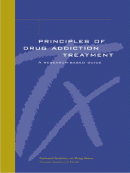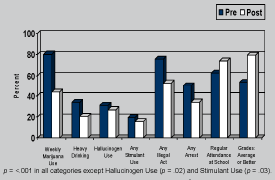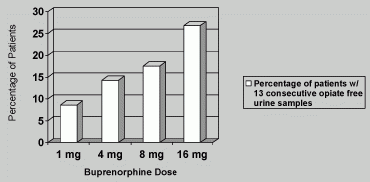Drug Treatment Works
Research has revealed a number of basic principles that underlie effective drug addiction treatment, as highlighted in NIDA’s Principles of Drug Addiction Treatment: A Research-Based Guide.
NIDA's Principles of Treatment
- No single treatment is appropriate for all individuals.
- Treatment needs to be readily available.
- Treatment must attend to multiple needs of the individual, not just drug use.
- Multiple courses of treatment may be required for success.
- Remaining in treatment for an adequate period of time is critical for treatment effectiveness.
Drug addiction can be effectively treated with behavior-based therapies and, for some drugs, such as heroin or nicotine, with medications. Additionally, treatment reduces the risk of HIV infection and can improve the prospects for employment.
Treatment for Drug Abuse and Addiction is Delivered in Many Different Settings
Pre- and post-treatment self-reported changes among those in long-term residential TCs
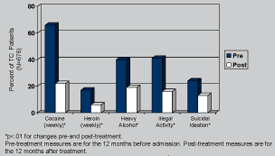 Source: Hubbard et al., 19971
Source: Hubbard et al., 19971Therapeutic communities (TCs) focus on the community as the therapeutic ingredient for facilitating change. The treatment usually consists of full-time engagement with a community of peers and staff members, in a residential setting. Most therapeutic communities consider 6 to 12 months to be the recommended duration of treatment.2
Programs tailored to treating adolescents can reduce drug use and criminal activity and improve school performance.
Medications Can Be Useful
An increase in the percentage of opiate-free urine specimens is associated with higher doses of buprenorphine. Such pharmacotherapy for the treatment of addiction is now available in medical office settings.
Studies have shown long-lasting effects with continued treatment. In one study, those that stayed in treatment had urine samples that tested negative for opiates 36-65% over a one-year period.4
Drug Treatment During and After Imprisonment Not Only Increases the Number of People Who Are Drug-Free., but Also Increases the Number of People Who are Arrest-Free
% Arrest-Free Since Release at 42-Month Follow-up
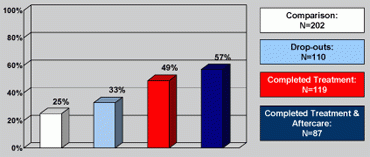 Source: Inciardi et al., 2002 5
Source: Inciardi et al., 2002 5A Continuing Care Strategy is Needed for Addiction as in Other Diseases
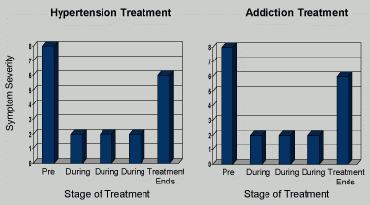 Source: McLellan et al., 2002 6
Source: McLellan et al., 2002 6Many chronic conditions such as diabetes, depression, hypertension, and asthma require continual care in order for treatment benefits to be sustained.
Addiction is similar to other chronic diseases in this regard. It requires monitoring of patient status on a regular basis, early intervention regarding possible problems, and proper referrals in order to maintain positive treatment effects.
Drug Abuse and HIV/AIDS are Intertwined Epidemics
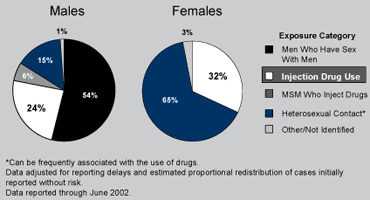 Source: Centers for Disease Control and Prevention, 2002 7
Source: Centers for Disease Control and Prevention, 2002 7The portion of AIDS cases related to drug abuse has steadily increased over the course of the past two decades and intravenous drug use continues to be a major contributing cause to the increase in new cases.
Drug Addiction Treatment IS HIV Prevention
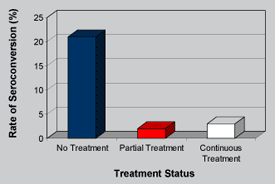 Source: Metzger et al., 19938
Source: Metzger et al., 19938Studies have shown that drug treatment can dramatically reduce the rate at which people acquire HIV.
Partial Recovery of Brain Function with Prolonged Abstinence from Drug Use
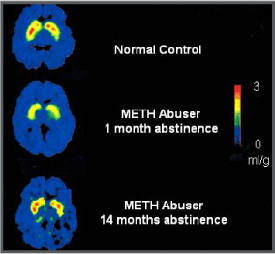 Source: Volkow et al., 2001 9
Source: Volkow et al., 2001 9
